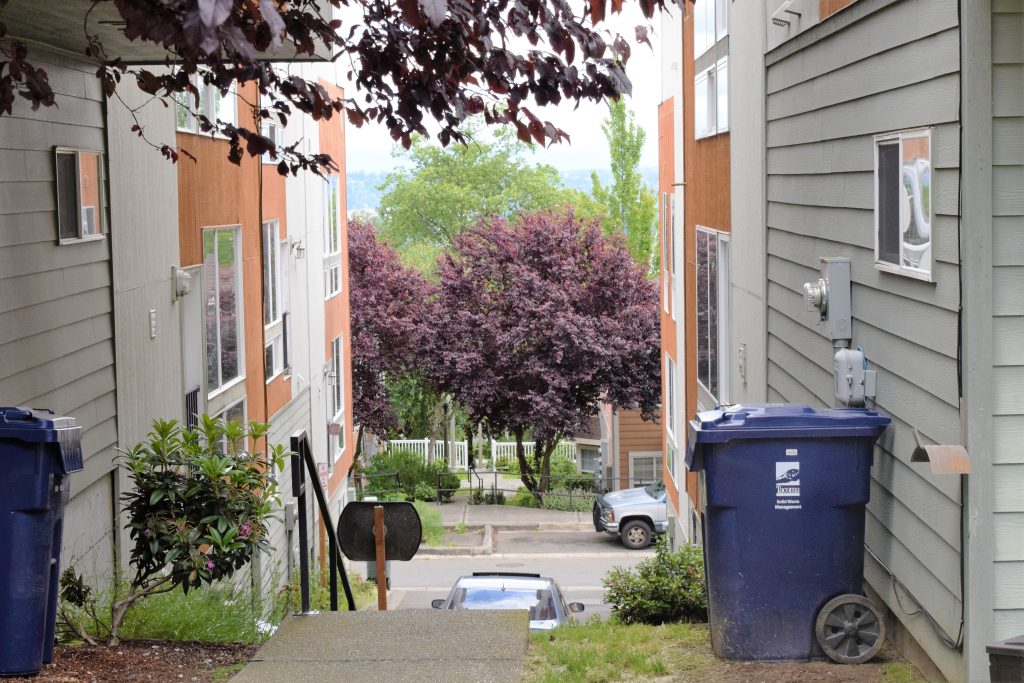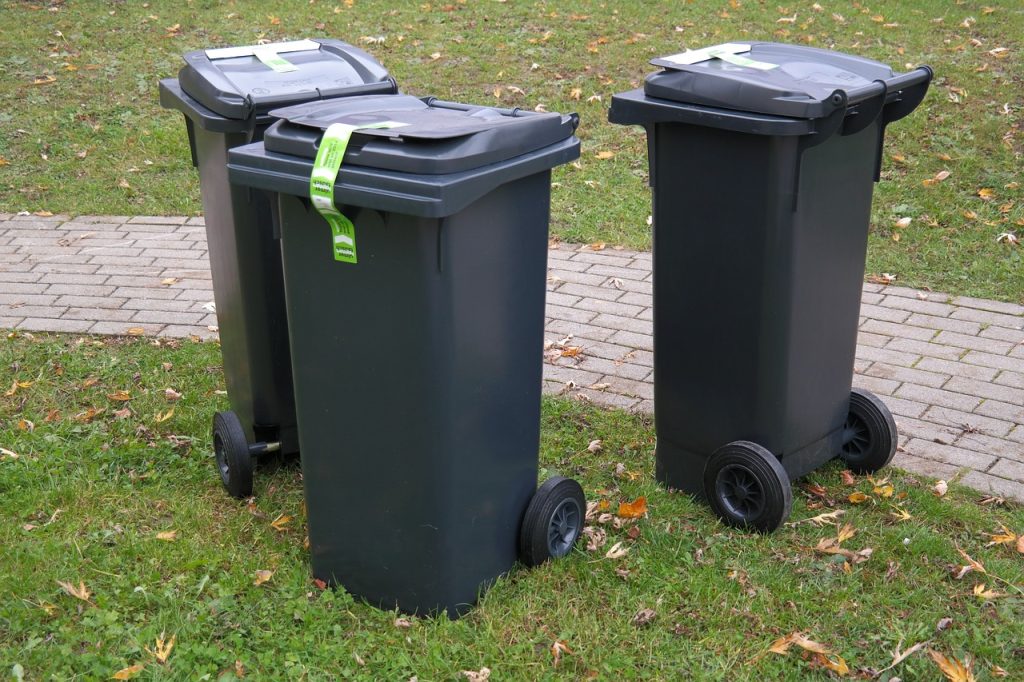Is it illegal to leave wheelie bins on the pavement in UK
Are you tired of constantly manoeuvring around wheelie bins on the pavement? Are you unsure of the laws surrounding this common practice? Look no further, as this article delves into the legality of leaving wheelie bins on the pavement in the UK. Stay informed and prevent any potential legal issues.
What Are Wheelie Bins?
Wheelie bins are large, wheeled containers used for waste collection in the UK. They are usually made of durable plastic and have a hinged lid. These bins are designed to be easily moved and emptied by waste collection trucks. They are commonly used by households and businesses to store and dispose of different types of waste, such as general waste, recycling, and garden waste.
Wheelie bins come in various sizes to accommodate different waste volumes and are an essential part of waste management systems in many cities and towns across the UK.

What Are the Rules for Wheelie Bins in the UK?
In the UK, there are rules regarding the placement and use of wheelie bins. Here are some key guidelines to follow:
- Collection day: Bins should be placed on the pavement or designated collection area by 7 am on the scheduled collection day.
- Accessibility: Bins should not obstruct the pavement, causing inconvenience or danger to pedestrians.
- Return bins promptly: After collection, bins should be promptly returned to your property to avoid cluttering the pavement.
- Recycling guidelines: Familiarise yourself with the local council’s recycling guidelines to ensure proper segregation of waste.
Fact: Did you know that in some areas of the UK, leaving your wheelie bin out for too long after collection can result in a fine? It’s important to follow the rules to maintain a clean and safe environment.
Can You Leave Wheelie Bins on the Pavement in the UK?
Leaving wheelie bins on the pavement in the UK is generally not allowed. Local councils have specific rules about where bins should be stored and when they should be collected. Leaving bins on the pavement can block pedestrians, cause inconvenience, and create hazards. Consequences may include warnings, fines, or refusal to collect waste. However, there are alternatives to consider, such as storing bins on private property, using wheelie bin storage units, or requesting assisted collection.
Proper storage of wheelie bins not only ensures compliance with regulations but also improves the appearance of the area, reduces accidents, and prevents unnecessary fines. It is important to check with local authorities for any exceptions to these rules.
What Are the Consequences of Leaving Wheelie Bins on the Pavement in the UK?
Leaving wheelie bins on the pavement in the UK can have several consequences. Firstly, it can obstruct pedestrians, especially those with disabilities or mobility issues. This can lead to accidents and injuries. Secondly, it can damage the pavement, causing trip hazards and requiring costly repairs. Additionally, leaving bins out for longer periods can attract pests and produce unpleasant odors. Finally, leaving bins on the pavement can result in fines from the local council.
To avoid these consequences, it is recommended to store wheelie bins properly on private property or use a storage unit.
Pro-tip: Keep your neighbourhood safe and tidy by being mindful of where you place your wheelie bins.

What Are the Alternatives to Leaving Wheelie Bins on the Pavement?
Leaving wheelie bins on the pavement in the UK is a common practice, but it can also lead to potential safety hazards and legal issues. Fortunately, there are alternatives to this problem, and in this section, we will discuss them in detail. From storing wheelie bins in a private property to using a storage unit specifically designed for them, there are various options available. We will also explore the option of requesting an assisted collection, which can alleviate the burden of dealing with wheelie bins on the pavement.
1. Storing Wheelie Bins in a Private Property
Storing wheelie bins on private property is essential for maintaining a tidy and organised neighbourhood. Here are steps to effectively store wheelie bins:
- Designate a dedicated storage area, such as a shed, garage, or fenced enclosure.
- Ensure the storage area is easily accessible for bin collection days.
- Install hooks or brackets to hang the bins to maximise space.
- Consider using a bin storage unit or screen for a more aesthetic solution.
A resident in our neighbourhood transformed an unused corner of their garden into a stylish bin storage area, complete with a lockable gate. This not only improved the overall appearance of the street but also reduced the instances of bins being left out and causing clutter.
2. Using a Wheelie Bin Storage Unit
Using a wheelie bin storage unit is a convenient and efficient way to keep your bins organised and out of sight. Here are the steps to effectively utilise a wheelie bin storage unit:
- Choose a suitable storage unit that can accommodate your bins.
- Ensure that the storage unit is placed in a convenient location, allowing easy access for bin collection and disposal.
- Label each storage compartment to easily identify which bin goes where.
- Implement a system for regularly rotating the bins to ensure proper usage and prevent unpleasant odours.
- Maintain the cleanliness of the storage unit by regularly cleaning it and avoiding the accumulation of dirt or debris.
- Consider using additional features such as locks or straps to secure the bins and prevent them from being tampered with or tipped over.
By following these steps, you can effectively utilise a wheelie bin storage unit and keep your bins organised and neatly stored away.
3. Requesting for an Assisted Collection
Requesting for an assisted collection for wheelie bins in the UK is a straightforward process that can make waste disposal easier for individuals who are unable to move their bins themselves. Here are the steps to request an assisted collection:
- Contact your local council and inquire about their assisted collection service.
- Provide the necessary information, such as your address and the reason for needing assistance.
- Submit any required documentation, such as medical certificates or proof of disability.
- Arrange a schedule for the collection of your wheelie bins.
John, a resident with mobility issues, requested an assisted collection for his wheelie bins. The council promptly arranged for a dedicated team to collect his bins on designated days. This service greatly improved John’s quality of life and ensured that waste disposal was taken care of efficiently.
What Are the Benefits of Proper Wheelie Bin Storage?
Proper storage of wheelie bins not only ensures a clean and organised environment, but it also comes with numerous benefits. In this section, we will discuss the various advantages of storing wheelie bins correctly. From improving the aesthetic appeal of your property to reducing the chances of accidents and avoiding costly fines, we will explore the practical reasons why proper wheelie bin storage is crucial. So let’s dive into the benefits and learn how to keep our surroundings clean and safe.
1. Aesthetically Pleasing
Having proper wheelie bin storage can contribute to a more aesthetically pleasing environment. Here are some steps to achieve this:
- Choose an appropriate storage solution, such as a wheelie bin storage unit or a designated area in your property.
- Keep the storage area clean and organised to maintain a neat appearance.
- Consider using decorative covers or screens to further enhance the visual appeal of the storage area.
- Ensure that the storage area is well-maintained and free from any unpleasant odours.
- Regularly check and clean the wheelie bins to prevent any spills or leaks that could detract from the overall aesthetic.
- Follow any local regulations or guidelines regarding the placement and storage of wheelie bins.
2. Reduces Risks of Accidents
Proper wheelie bin storage reduces the risk of accidents in several ways in the UK:
- Prevention of tripping hazards by keeping bins off pavements and footpaths.
- Reduction of bin-related injuries caused by tipping or falling objects.
- Minimisation of vehicle collisions with bins left on the road.
- Decrease in fire hazards by ensuring bins are stored safely away from flammable materials.
- Elimination of potential health risks from exposure to waste and vermin.
3. Prevents Unnecessary Fines
Proper wheelie bin storage helps prevent unnecessary fines in the UK. Here are steps to avoid penalties:
- Ensure your wheelie bin is stored correctly on your property.
- Place your bin out for collection on the designated days and times.
- Do not overload your bin or leave any waste outside of it.
- Keep the lid closed to prevent waste from falling out or attracting pests.
- Avoid obstructing public pathways or roads with your bin.
- Follow any specific guidelines or regulations set by your local council.
By following these steps, you can prevent unnecessary fines and contribute to a clean and safe environment.
What Are the Exceptions to the Rules of Wheelie Bins in the UK?
While it is generally not allowed to leave wheelie bins on the pavement in the UK, there are some situations where this rule does not apply. In this section, we will talk about the situations where wheelie bins can be used in the UK despite the general prohibition. These exceptions include the use of wheelie bins for businesses and commercial properties, as well as for households where there are disabled individuals who may need help with their waste management. Let’s take a closer look at how these exceptions may impact the regulations concerning wheelie bins in the UK.
1. Wheelie Bins for Commercial Properties
Wheelie bins for commercial properties in the UK require proper management and adherence to regulations. Here are some steps to consider:
- Assess waste volume: Determine the appropriate size and number of wheelie bins based on the amount of waste generated.
- Choose suitable bin types: Select bins with features like lockable lids and wheels for easy maneuverability.
- Schedule collection: Arrange regular waste collection services with a licensed waste management company.
- Train employees: Educate staff on waste segregation and recycling practices to ensure compliance.
- Maintain cleanliness: Keep the bins clean and odor-free to promote a hygienic environment.
By following these steps, commercial properties can effectively manage their waste and contribute to a cleaner and more sustainable environment.
2. Wheelie Bins for Disabled Households
Choosing the right wheelie bin storage solution is crucial for disabled households in the UK. Here are some steps to consider:
- Assess your needs: Determine the appropriate size and type of wheelie bin storage unit for your specific requirements.
- Research options: Look for storage units that are easily accessible and have features like ramps or hydraulic lifts to accommodate disabled individuals.
- Consult local authorities: Contact your local council to inquire about any specific guidelines or assistance available for disabled households.
- Apply for assistance: If needed, request an assisted collection service from the council, where they collect and return your wheelie bins to a suitable location.
Fact: In the UK, disabled households can benefit from the “Accessible Wheelie Bins” scheme, which provides specially designed bins with easy-to-use features for individuals with disabilities.







